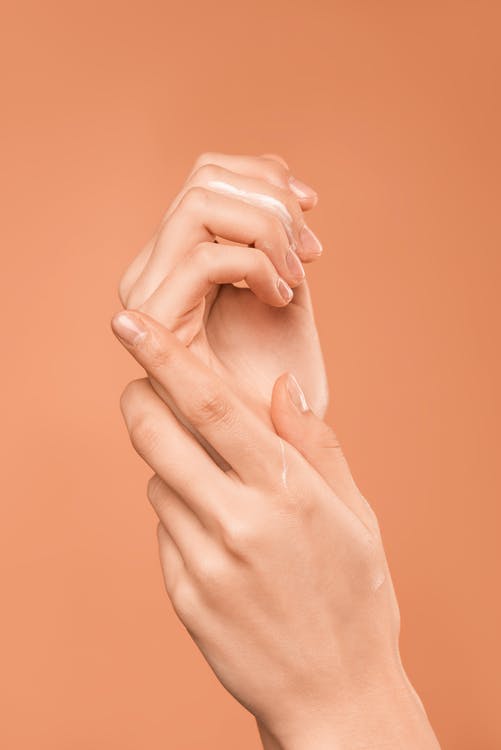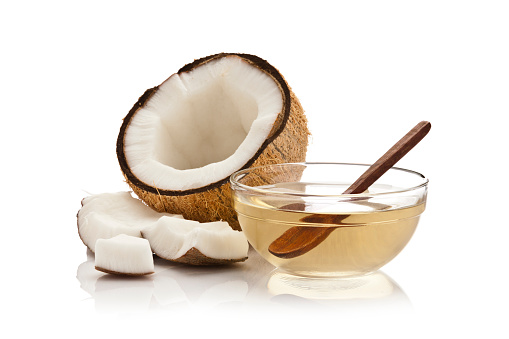Two of the most popular oils on the market today are Jojoba and Argan.
Jojoba has been a staple in native Americans’ medicine cabinet for centuries, while Argan oil is a relatively new product that was first used by local Moroccan women before it became mainstream.
Using these two oils means you surely need to read a lot of the differences of these oils and this Jojoba Oil Vs Argan Oil guide will surely help you with this.
Both oils are obtained from the nut of their respective plant, but there are many differences between them.
Argan nuts have to be processed at low temperatures using presses which preserves its important nutrients, while Jojoba oil can simply be squeezed out through a mill. Keep reading and you’ll surely discover more on these oils.
Contents
- 1 Jojoba Oil Vs Argan Oil: Differences Between The Two Oils
- 2 Jojoba Oil Vs Argan Oil Benefits
- 3 Jojoba Oil Vs Argan Oil: Which One’s Better?
- 4 Can I Mix Jojoba Oil With Argan Oil?
- 5 Jojoba Oil Vs Argan Oil For Hair
- 6 Jojoba Oil Vs Argan Oil For Stretch Marks
- 7 Jojoba Oil Vs Argan Oil For Dry Skin
- 8 Jojoba Oil Vs Argan Oil For Acne Prone Skin
- 9 Argan Oil Vs Jojoba Oil For Hair Growth
- 10 Jojoba Oil Vs Argan Oil For Beard
- 11 How Do You Use Jojoba Oil And Argan Oil For Hair?
- 12 How Do You Use Jojoba Oil And Argan Oil For Acne?
- 13 Jojoba Oil Vs Argan Oil: Side Effects
- 14 Jojoba Oil Vs Argan Oil – FAQs
- 15 Jojoba Oil Vs Argan Oil – Final Verdict
Jojoba Oil Vs Argan Oil: Differences Between The Two Oils
Argan oil is a natural antioxidant and can be used to heal psoriasis, but it cannot be used as a leave-on skin care product.
Jojoba oil, on the other hand, can be applied directly to your skin since it is noncomedogenic; it does not clog your pores.
Argan Oil is known to be rich in Vitamin E and essential fatty acids, but Jojoba oil is also full of antioxidants and Vitamin E.
Argan oil penetrates the skin and leaves it feeling supple and smooth, but since Jojoba oil forms a film on your skin, it’s better suited for massage or body oils than facial treatments.
Argan oil is often marketed as an effective anti-aging product, but studies show that Jojoba oil is actually better at reducing wrinkles.
Argan oil can aid in hair growth, but studies show that Jojoba oil is more efficient at nourishing hair follicles. Here are some more differences of these two:
1. Availability
Argan oil is easier to find because it’s made from the fruit of the argan tree, while jojoba oil comes from a shrub which can only be found in specific regions.
2. Production Method
Jojoba needs to undergo several processing procedures which include hydrolysis, bleaching and winterization. Argan nuts, on the other hand, only need cold-pressing in order to get their oil.
3. Color And Smell
Jojoba oil is nearly colorless and odorless, while argan oil is a dark greenish color and has a distinctive smell that some people may dislike.
4. Taste
Jojoba oil has a nutty flavor, but smells and tastes much like olive oil. Argan oil is not as popular as jojoba oil for cooking, but it can replace butter or margarine in certain dishes.
5. Effects On The Skin
Argan oil penetrates your skin and leaves it feeling supple and smooth, while Jojoba oil forms a film on your skin that makes it ideal for massage or body oils, but not facial treatments.
6. Effects On Hair
Argan oil aids in hair growth by improving blood circulation to your scalp, but studies show that Jojoba is more efficient at nourishing hair follicles because it increases collagen production which creates stronger strands of hair.
Related Video – Which Is Better? Jojoba Or Argan Oil?
Jojoba Oil Vs Argan Oil Benefits
Jojoba Oil Benefits
What are jojoba oil benefits? Jojoba oil is praised for its ability to heal acne, dandruff, psoriasis and sunburn.
It is also used as a leave-on skin treatment that can remove makeup and moisturize skin at the same time.
Jojoba oil contains Vitamin E and antioxidant fatty acids which protect cells from free radicals and reduces signs of aging.
The antioxidant properties of jojoba oil is especially beneficial to those with eczema because it soothes irritated skin without leaving an oily residue.
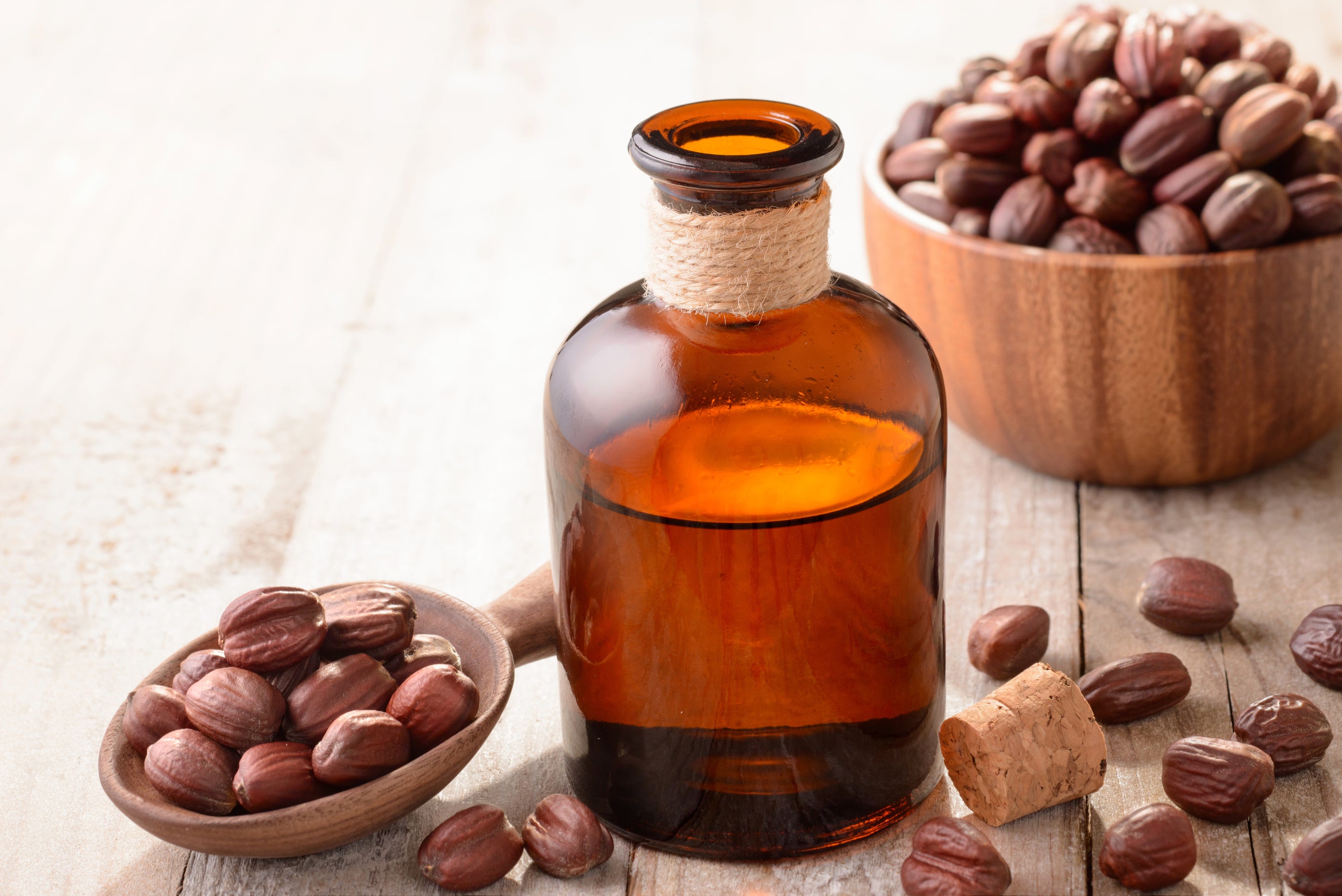
Argan Oil Benefits
What are argan oil benefits? Argan oil controls frizz and adds shine to dry hair, plus it leaves your hair soft, smooth and manageable. It also aids in hair growth and helps stop split ends.
Another beauty benefit of argan oil is that it can be beneficial for those who suffer from psoriasis, eczema and acne because it soothes irritated skin and fights the bacteria responsible for causing these conditions.
Argan oil contains Vitamin E, essential fatty acids and antioxidant which restore nutrients to skin cells while repairing damaged skin tissues.
These health benefits make argan oil a prized beauty product that’s also used as a substitute for massaging fine hair.
Jojoba Oil Vs Argan Oil: Which One’s Better?
Both oils have their pros and cons depending on what you’re looking for.
Argan oil benefits are plentiful, but it is not as popular as jojoba oil because of its less rich texture that is difficult to work with in some beauty applications.
Jojoba oil contains Vitamin E which provides health benefits for your hair, skin and nails plus it penetrates the surface of cells without leaving an oily residue so your hair looks shiny and healthy no matter how dry or frizzy it is.
Both oils have shown to be effective anti-aging ingredients that contain high amounts of antioxidants which fight free radicals that damage skin cells.
What is Argan Oil Good For?
Argan oil has become an indispensable beauty product because of its use as a leave-on skin treatment that can remove makeup and moisturize skin at the same time.
It’s also used to heal acne, dandruff, psoriasis and sunburn. Argan oil contains Vitamin E and essential fatty acids which protect cells from free radicals and reduce signs of aging.
The antioxidant properties of argan oil are especially beneficial to those with eczema because it soothes irritated skin without leaving an oily residue like other topical treatments do.
The healthy fats in argan oil also substitute for massaging fine hair.
What Is Jojoba Oil Good For?
Jojoba oil controls frizz and adds shine to dry hair, plus it leaves your hair soft, smooth and manageable. It also aids in hair growth and helps stop split ends.

Another beauty benefit of jojoba oil is that it can be used as a leave-on skin treatment that can remove makeup and moisturize skin at the same time because it penetrates your skin without leaving an oily residue.
The antioxidant fatty acids in jojoba oil also nourish stressed out follicles which reduces signs of aging while preventing acne breakouts.
Can I Mix Jojoba Oil With Argan Oil?
Mixing jojoba and argan oils will not produce any new benefits; however, using the two oil may enhance the health of your hair and skin.
Jojoba oil can be used as a carrier for essential oils like lavender or orange which adds noticeable fragrance to your natural beauty routine.
Jojoba is also great if you want to use an essential treatment on frizzy hair because it’s lightweight enough for all hair types to absorb easily without leaving residue.
Argan oil works well with other essential oils too, but its heavy texture makes it best for dry skin conditions like eczema and psoriasis.
The biggest benefit of mixing jojoba and argan oil together is that using both can strengthen each other’s properties, but they can’t combine to become a third type of oil because the oils are not compatible.
Jojoba Oil Vs Argan Oil For Hair
We all need pretty hair and are, therefore, ready to try out whatever oils we come across in our efforts to get those silky and pretty hair.
Here, we are comparing argan and jojoba oil for what they can do to help you make your hair dreams come true
Jojoba Oil For Hair
Jojoba oil is one of the most popular and commonly used oils for hair. It has been dubbed as a wonder oil because it can provide you with so many benefits ranging from healthy to shiny looking hair, getting rid of frizz and making your hair grow longer than usual. Jojoba oil is also great for those suffering from dry scalp problems such as psoriasis or dandruff. Here are some of the main benefits of using jojoba oil on your hair:
- Acts as a natural conditioner
- Can help with split ends
- Makes your hair silky and smooth
- Is easy to use and apply
- Fights fizziness in your hair better than most other hair products
- Perfect to use as a leave on oil treatment because it won’t leave behind any residue after you are done massaging your hair.
- Can be used to treat dry scalp problems like dandruff and psoriasis
Argan Oil For Hair
Argan oil is another type of the wonder oil that makes your hair strong, healthy and shiny looking.
You can use argan oil for various purposes which include treating split ends, getting rid of frizzy locks, moisturizing dry scalps due to cold weather or because you have eczema.
It also helps with growth so if you want longer tresses then this one is perfect for you. Here are some benefits of using this oil on your locks:
- Acts as a conditioner and moisturizer
- Great to use on your hair if it is very dry or you have eczema.
- Can help with frizzy looking hair problems
- Can treat split ends effectively.
- Is easy to use because it’s light in texture so will not weigh down your tresses.
- Can also be used for various hairstyles including braids, buns, up dos etc. which makes this oil versatile enough to be used by almost everyone!
Jojoba Oil Vs Argan Oil For Stretch Marks
Argan oil is great for moisturizing dry skin that is why it has been used in the making of stretch mark creams.
Jojoba oil can also be used to moisturize skin but it’s not as heavy as argan oil which means you’ll get better results by adding jojoba oil to your mixture than just using Argan oil alone.
Jojoba Oil Vs Argan Oil For Dry Skin
Both jojoba and argan oil can help to moisturize dry skin, but it’s suggested that you use a mixture of the two oils so you will get maximum results for your efforts.
Both jojoba and argan oil are great at fighting bacteria on your skin because they are antibacterial in nature.
If you have acne, using these oils will make them go away faster.
However, if your acne is due to oily skin then you might want to stay away from using both these oils on your face because they may increase the amount of oil produced by your body which can lead to more breakouts.
Jojoba Oil Vs Argan Oil For Acne Prone Skin
Jojoba oil is good for acne prone skin because it fights against bacteria that can lead to breakouts.
Argan oil works great but you might not want to use it on its own if your acne is due to oily skin because argan oil can also increase the amount of sebum produced by your skin which will cause even more outbreaks.
If you have dry, flaky skin then using jojoba and argan oil together should work fine since both oils are beneficial for moisturizing dry skin.
Argan oil has anti-inflammatory properties so it can help reduce swelling that comes along with pimples or acne.
However, if your pimples are caused by sensitive skin then using argan oil can actually make it worse because it’s a very strong oil.
Jojoba oil, on the other hand, is not as strong so should have less irritating effect on sensitive skin even though it will be effective in combating acne.
Argan Oil Vs Jojoba Oil For Hair Growth
Jojoba oil should help with hair growth because of its moisturizing properties while still being light enough to absorb easily into your scalp and hair.
Argan oil is also good for helping with hair growth but you’ll need to use more of it if you want better results.
It is suggested that you mix these oils together when using them for this purpose so you’ll get maximum results without any side effects like greasiness or oiliness.
You can add jojoba oil to argan oil for this purpose or vice versa depending on which one is your favorite and most effective when it comes to hair growth.
Jojoba Oil Vs Argan Oil For Beard
Both oils help to moisturize your skin which is what you need for good beard growth.
Additionally, both these oils are antibacterial in nature so they will fight against bacteria that can lead to breakouts or other issues under your beard.
Jojoba oil is non-greasy and absorbs easily into the skin.
It has a strong effect on facial and beard hair when used on its own but it doesn’t absorb too quickly into the skin which makes it great for adding volume to your beard.
I recommend using jojoba oil in combination with argan oil because you’ll get better results that way than just using one or the other alone so you’ll get all the benefits of each oil without any side effects like greasiness or weighing down your facial hair.
Since jojoba oil is lighter than argan oil, it will likely be the one that absorbs into your skin and beard first but you can add more of the other oil to help moisturize and add volume if necessary.
How Do You Use Jojoba Oil And Argan Oil For Hair?
Since jojoba and argan oil are both very moisturizing, using them together can help to provide your hair with all the moisture it needs without causing heavy buildup like other oils might.
Here are the steps to use Argan Oil and Jojoba Oil for your hair to achieve maximum results:
- Shampoo hair using your favorite shampoo and rinse thoroughly.
- Apply a mixture of diluted Argan and jojoba oil to the lower half of your hair, making sure you get it all the way down to the roots
- Take a shower cap and put it on your head so that no oil can drip into your eyes or face
- Leave in for 30 minutes and then rinse with cool water
- Repeat this process 1-2 times per week.
These oils are very moisturizing which is great for keeping your hair soft but they may cause build up over time which will lead to greasy looking or feeling hair.
Make sure to shampoo at least once per week to help prevent this from happening.
When you use these two oils together, they won’t leave your hair looking greasy or weighed down because they absorb easily into the scalp and hair.
If your hair is oily then only mix a few drops of each oil together and see how well it works for you before adding more oil.
How Do You Use Jojoba Oil And Argan Oil For Acne?
Mix both oils together and apply a small amount of the mixture to your face using a cotton ball or makeup pad for best results.
If you have dry skin, argan oil is a great moisturizer so you may want to use it alone if you don’t mix it with jojoba oil.
Mixing them together will allow them to work better on oily skin since the jojoba oil helps balance out the strong effects of argan oil without causing any side effects like greasiness or buildup over time.
Using these oils together should reduce inflammation that occurs with acne which can lead to quick healing as well as reduce the amount of breakouts that happen over time.
You should see results within a few weeks if you use this mixture continuously and you can continue to do so for as long as it works well for you since there are no harmful chemicals or additives in these oils.
Jojoba Oil Vs Argan Oil: Side Effects
Both these oils are generally considered safe to use on the skin and hair as long as you don’t use too much of either or both.
If you have dry, sensitive skin then argan oil may be too strong for your skin type so start out with just a little bit and see how well it works on your skin before adding more.
Argan oil can cause irritation if used on damaged or irritated skin so keep that in mind if you’ve recently had any breakouts or other problems with blemishes that need to heal first.
Jojoba oil is not as strong as argan oil but using too much of it at once could cause an allergic reaction on someone who has sensitive skin so start slow until you know how your skin will react.
Jojoba Oil Vs Argan Oil – FAQs
1. How Long Does It Take For Jojoba Oil And Argan Oil To Absorb Into The Skin?
Jojoba oil takes about 10 minutes to fully absorb into the skin. Argan oil takes about 3 hours to fully absorb into the skin.
2. What Are The Ingredients In Jojoba Oil And Argan Oil?
Jojoba oil has a few ingredients including polyunsaturated fatty acids, vitamin E, glycerides, many vitamins, minerals and antioxidants that your skin needs to stay healthy. Argan oil is a plant-based ingredient that comes from the fruit of the Argan tree.
3. How Often Can I Use Jojoba Oil And Argan Oil?
Jojoba oil can be used once or twice per day without causing skin irritation for most people. If you have dry skin, using it 3 times per day is best. Argan oil can be used up to twice per day without causing any skin irritation along with jojoba oil.
4. How Much Do Jojoba Oil And Argan Oil Cost?
Jojoba oil typically costs $14-$20 for one ounce to $36-$48 for four ounces while argan oil costs around $32-$35 for four ounces.
5. How Do I Use Jojoba Oil And Argan Oil?
Understanding the basics of mixing essential oils, mix both oils together and apply a small amount of the mixture to your face using a cotton ball or makeup pad for best results. If you have dry skin, argan oil is a great moisturizer so you may want to use it alone if you don’t mix it with jojoba oil.
Mixing them together will allow them to work better on oily skin since the jojoba oil helps balance out the strong effects of argan oil without causing any side effects like greasiness or buildup over time.
Using these oils together should reduce inflammation that occurs with acne which can lead to quick healing as well as reduce the amount of breakouts that happen over time.
Jojoba Oil Vs Argan Oil – Final Verdict
Taking a closer look at both these oils shows similarities and differences between the two and why they may be used together and apart depending on your needs.
Jojoba oil has less ingredients than argan oil which makes it great for people who don’t like using too many products at once or who prefer to use natural products whenever possible.
Argan oil is best used with jojoba oil if you want to get rid of acne scars since the mixture of both oils leads to quick healing and less skin irritation over time while preventing future breakouts from occurring.
Using these two oils together will balance out the effects that each oil has and keep them from becoming too strong or causing unnecessary side effects that can irritate your skin and cause other problems in the long run so when in doubt, add a little bit of jojoba oil to argan oil before using either one on their own.
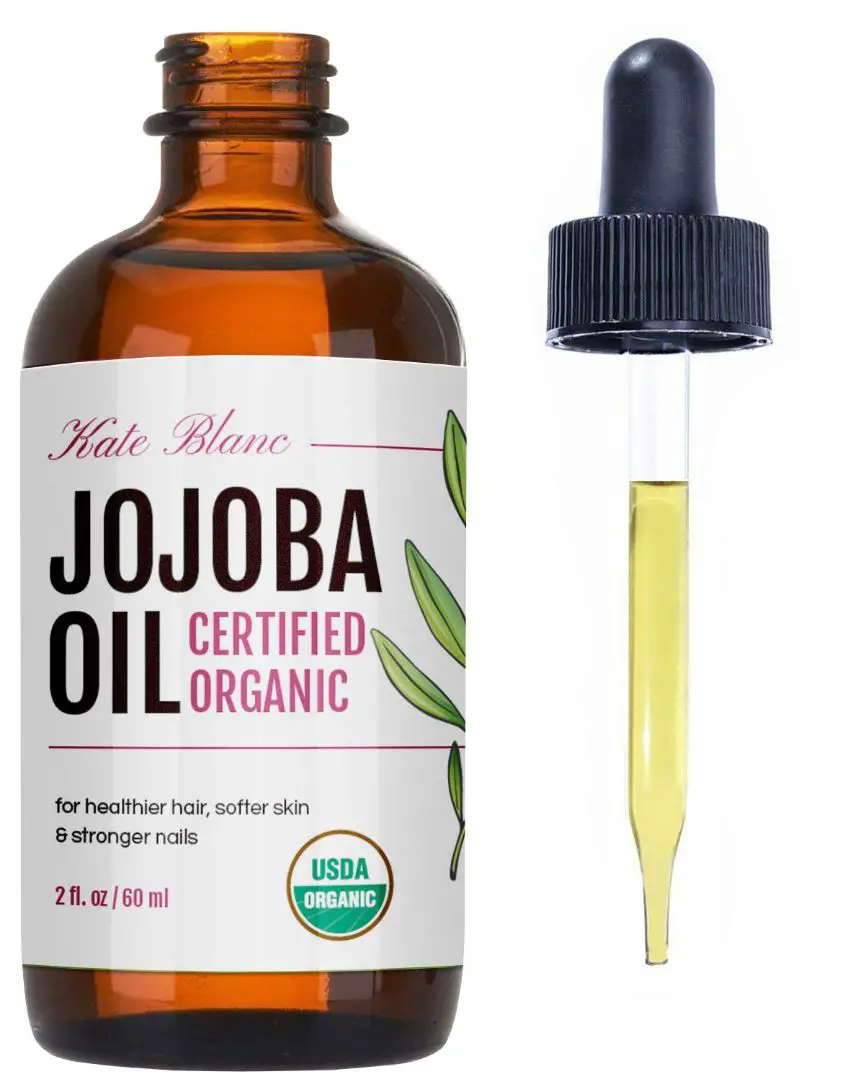

![30 Best Jojoba Oil Shampoo [Reviewed] J·R·LIGGETT'S All-Natural Shampoo Bar](https://theoilvirtue.com/wp-content/uploads/2022/02/J·R·LIGGETTS-All-Natural-Shampoo-Bar-Jojoba-And-Peppermint.jpg)
![12 Best Jojoba Carrier Oils [REVIEWED] Cliganic USDA Organic Jojoba Oil, 100% Pure| Natural Cold Pressed Unrefined Hexane Free Oil for Hair & Face | Base Carrier Oil](https://theoilvirtue.com/wp-content/uploads/2022/02/Cliganic-USDA-Organic-Jojoba-Oil-100-Pure-Natural-Cold-Pressed-Unrefined-Hexane-Free-Oil-For-Hair-Face-Base-Carrier-Oil.jpg)
![20 Best Jojoba Oil Shave Oil [Reviewed] The Man Company 100% Natural Beard Oil For Men With Almond Oil, Thyme, Argan, And Jojoba Oil](https://theoilvirtue.com/wp-content/uploads/2022/02/The-Man-Company-100-Natural-Beard-Oil-For-Men-With-Almond-Oil-Thyme-Argan-And-Jojoba-Oil.jpg)
![15 Best Jojoba Oil Body Oil [Reviewed] Jojoba Oil By Leven Rose Pure Cold Pressed Organic Unrefined Moisturizer For Skin Hair Body Nails And Cuticles](https://theoilvirtue.com/wp-content/uploads/2022/02/Jojoba-Oil-By-Leven-Rose-Pure-Cold-Pressed-Organic-Unrefined-Moisturizer-For-Skin-Hair-Body-Nails-And-Cuticles.jpg)


![15 Best Jojoba Oil Hair Oil [REVIEWED] Cliganic USDA Organic Jojoba Oil, 100% Pure | Natural Cold Pressed Unrefined Hexane Free Oil for Hair & Face](https://theoilvirtue.com/wp-content/uploads/2022/02/Cliganic-USDA-Organic-Jojoba-Oil-100-Pure-Natural-Cold-Pressed-Unrefined-Hexane-Free-Oil-For-Hair-Face.jpg)
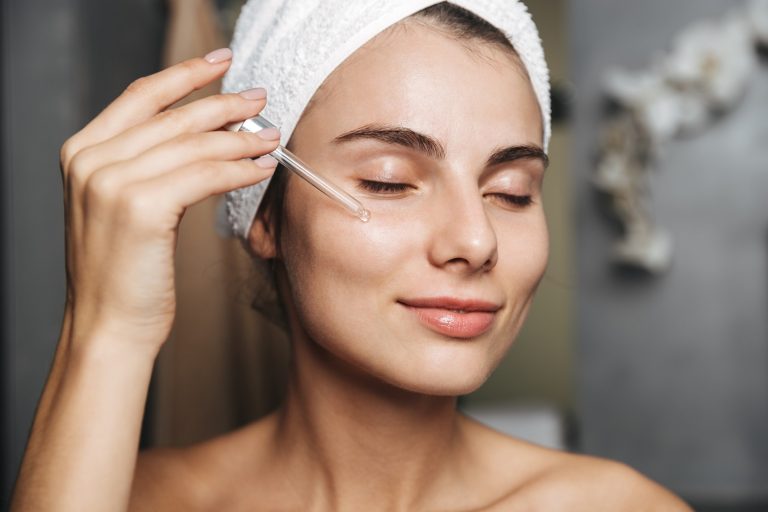
![10 Best Jojoba Oil Gallon [Reviewed] Cliganic Organic Jojoba Oil 128oz With Pump (Gallon Size), Bulk, 100% Pure - Non-GMO - Cold Pressed - Unrefined](https://theoilvirtue.com/wp-content/uploads/2022/02/Cliganic-Jojoba-Oil-Non-GMO-Bulk-Gallon-128oz-100-Pure-Natural-Cold-Pressed-Unrefined-Hexane-Free-Oil-For-Hair-Face.jpg)


![18 Best Jojoba Oil Soap [Reviewed] Cove Castile Soap Unscented - Organic Argan, Jojoba, And Hemp Oils](https://theoilvirtue.com/wp-content/uploads/2022/02/Cove-Castile-Soap-Unscented-Organic-Argan-Jojoba-And-Hemp-Oils.jpg)
